I reckon this the tenth time we've visited Meze, the eighth when we've used the camping municipal in Loupian, an ancient village a few kilometres to west of the town. So why do we keep coming back?
A beautiful village -
We came across Loupian and it's lovely Camping Municipal in late October 2014 about a fortnight into our first 'big trip'. We loved the place immediately - this is what I wrote:
We had just bought a few groceries from the Carrefour Market in Mèze, packed them in our day-sacs and were pedalling back to the Camping Municipal in Loupian, about three kilometres up the 'piste cyclable' which winds its way through the Picpoul de Pinet vineyards. The sky was a sort of misty chalk-blue, the breeze light and warm, and the local padre was giving his belfry a bit of serious welly. I speeded up slightly and drew alongside Gill.
"This is delightful," I remarked.
"Indeed," Gill agreed.
...as in truth there was nothing more which could be said about the matter. The only noise disturbing this idyllic scene was the whirring of our electric bikes, which at slow speed can sound remarkably similar to a Coop milk float of mid 1970s vintage.
We stayed three night at Loupian. The village is set back a few kilometres from the Bassin de Thau, the salt water lagoon that stretched between the ancient ports of Sete and Agde. The village itself is a forgotten sort of place, a warren of narrow streets and tumbled down ramparts. On the outskirts a large church stands among the vineyards Maybe in times past the village was more important. Certainly the area has been settled for millennia, the remains of a large Roman villa can be found just outside the village.
It's not exactly as it used to be, nine years ago the place exuded a kind of half overlooked, dishevelled charm. Some of the houses seemed abandoned. In the ancient centre shops were closed, the footpath from the campsite to the village was unpaved and potholed.
Not now. A flower lined, smooth pavement leads to the village. The place itself has come back to life, a modern bus stop constructed, the ancient monuments sympathetically restored, all the houses now look occupied and well cared for.
The boulangerie near the old square has reopened, the café on the main road has been spruced up and is well reviewed, allotments have been established, in this climate you can grow anything - it's a land of plenty.
This didn't happen by magic. Though much of the southern France is a far right enclave , not all of it - nearby Sete has a communist mayor, Loupian's is left leaning too. What kind of community do you want - a collection of individuals, each vying to become wealthier than the next, or somewhere enriched collectively? Loupian still feels charming, but it's not dishevelled anymore, it is thriving and prosperous. It is possible to change things for the better, but only by working collectively - 'Vive la Republique!' Loupian asserts confidently.
A gorgeous landscape -
There is some very special about the landscape at the eastern end of the Bassin de Thau. It undulates gently along the shore of the big salt lagoon, its silvery expanse giving the light a kind of glittering luminance.
The land itself is green, a patchwork of woods, vineyards and arable farms. The coastal plain of Herault is expansive, the smudge of bluish grey to the north belies the magnificent wildness of the the limestone Causse to the north.
Above all, this is a very human landscape, a a land that has sustained us for thousands of years. Stand for a moment in some quiet spot hereabouts and you sense palpable ancientness, profound dwelling. As Carl Sagan said, 'preserve and cherish the pale blue dot, the only home we've ever known.'
Meze - a very particular place -
Authenticity is a somewhat unfashionable notion. I guess this is unsurprising given how much of our lives are experienced vicariously, moderated through media, curated on-line by anonymous algorithms. However, real stuff has not disappeared, but we choose to ignore it and stare at the screen instead. It's what I am doing now, and you too.
What's great about Meze is it exudes real stuff. We organised our time here to make sure we were here either on a Thursday or a Sunday - market day. It's a wonder to behold, part flea market but mainly produce.
...and the smaller one in front of the Marie, plane tree shaded with a beautiful fountain in the middle of it.
It's in the small details that you appreciate how much people care about living here. A small plaque memorialises the august local officials who erected the fountain in 1895. Gushing water has been the square's soundtrack for 128 years - there is nothing virtual about water - and it's touching that these ordinary officials are remembered for their work more than a century later, and the lettering is still pristine.
Not any old croque -
It took us a few visits to Meze before we discovered the water bus service across the etang connecting the place to it's more famous neighbour, Sete. This was not an oversight on our part, the service only runs from the beginning of June to the end of September; most of our previous visits here have been at the end of spring trips in May or later in the autumn. In 2021, however, we celebrated the end of COVID restrictions by heading south early. We were in Meze by mid September, so we caught the late morning boat across to Sete, and the return at 3.00 pm, perfectly timed for a stroll through the Sete and a relaxed light lunch in a cafe.
So since we are embracing 'the same old' on this trip we decided to do exactly the same thing. Except of course things are never exactly the same if you repeat them.
We cycled down to Meze port. Having just asserted a couple of paragraphs ago how authentic the place is, circumstances conspired to remind us that authenticity is a relative notion in France. At times the place is so French it feels as if some mysterious force of metafiction is at work, curating stuff so it achieves some kind of brand conformity. What seems implicitly French is actually complicitly so.
It's not the fact that the catamaran returning from a tourist trip to the oyster beds sailed proudly up the harbour with some excrable French pop song blasting from its speakers that created an impromptu theatrical moment, it was when people around us all started to hum along too.
You get the sense that time here doesn't unfold randomly like it does at home but occurs in episodes, like little skits. This continued as soon as we boarded the water bus.
Two guys and a young woman operated it. She seemed to be the trainee but did all the driving. One of the guys was captain, the other the mate. He collected the fares and was responsible for the acrobatic moment when he had to leap between the boat and the quayside, secure the mooring rope and drag out the gang plank. The captain made the point of not overtly supervising the trainee. The trainee was pointedly nonchalant, glancing back at the captain and making small talk, only occasionally checking on our progress across the etang, once or twice making a little detour to ensure the wake did not upend the odd paddle boarder brave enough to venture well offshore.
The trainee concentrated a little harder as we entered Sete harbour. She had to position the long water bus exactly to fit under a low bridge the manoeuvre it carefully next to the stone landing stage. This involved slowing the tub-like craft by reversing the main engine then using lateral thrusters. It looked tricky, the captain moved within arm's reach of the wheel as she docked, but didn't need to intervene. The mate jumped off the stern onto the quay and secured the boat. The passengers give a small cheer and applauded. The young trainee flounced past us looking pleased with herself. You see, not simply a journey but an event, an episode which enfolded theatrically. This couldn't happen back home. We are taught from being toddlers that it's rude to stare. In France people are much more relaxed about observing and being observed.
This affects how they represent themselves there is an unmistakable 'French look'. It catches your eye from advertising hoardings and adorns public buildings.
A few metres from the water bus landing Sete station's handsome facade decorated with 'the look'
A little further - on a perfume advert. Unequivocally French.
We made our way through Sete's attractive streets the run alongside a grid of canals. Like Loupian the place looks more prosperous than it used to. When we visited here with the kids, maybe fifteen years ago it had a slightly raffish old port feel. Today it's more stylish and chic.
Two years ago we happened upon a small cafe - Torrefaction Noailles. We loved it, informal, stylish, inexpensive, serving simple homemade food with style and panache. I went off on one over a croque named after Rita Hayworth.
The people who own it are great, a bit extravert and artsy, but very accommodating. Gill explained about how parosmia was making it difficult for her to eat onion and garlic - a bit tricky in France! They rustled up a salad avoiding those ingredients specially for her. I indulged myself with another 'Rita Hayworth'.
Then back to Meze on the 3 o'clock boat. Only the two guys this time, maybe the trainee was resting on her laurels. Seeking out different places is a worthwhile aim, but old haunts can be comforting, and right now I think that's something we both need.

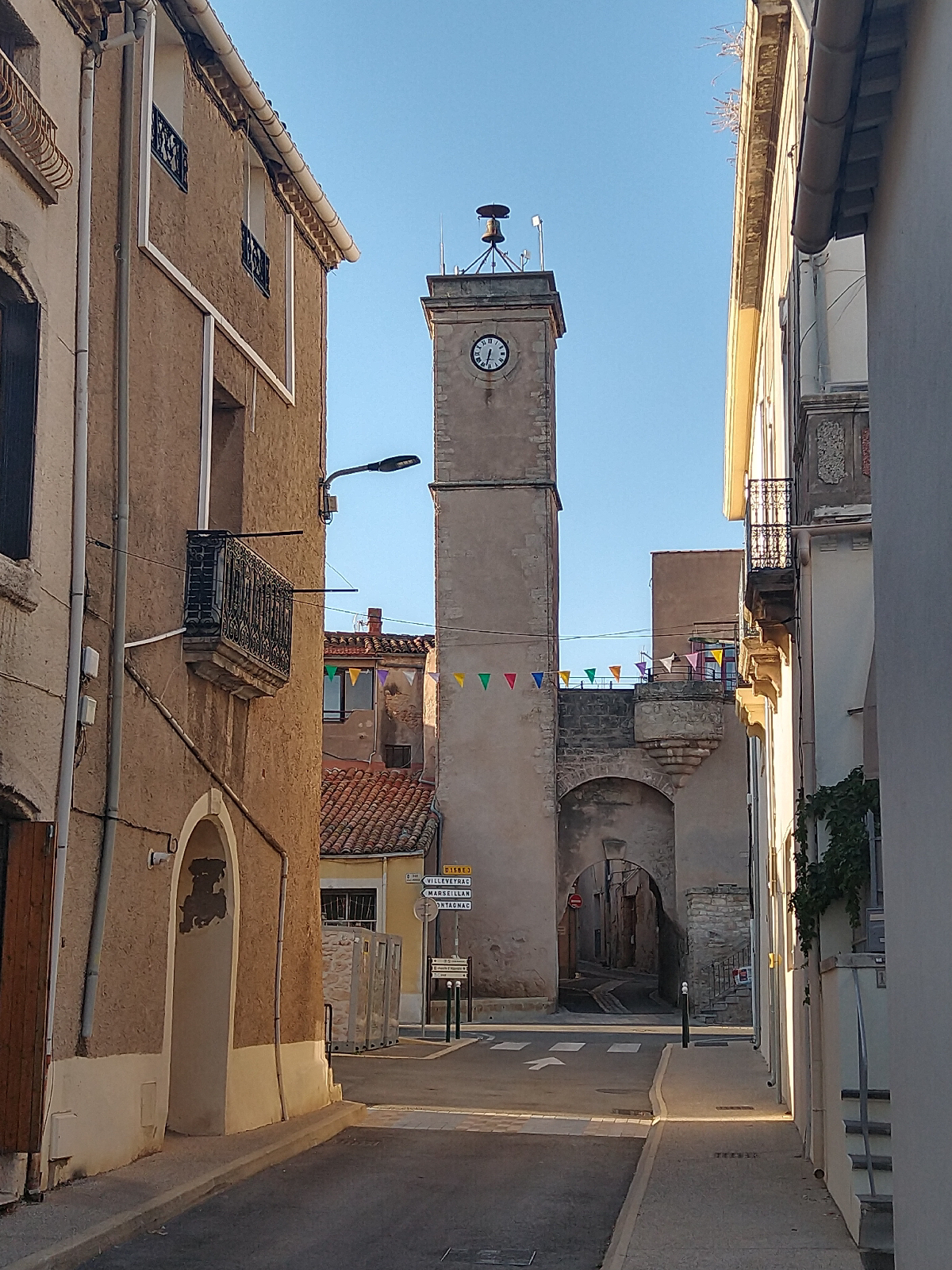
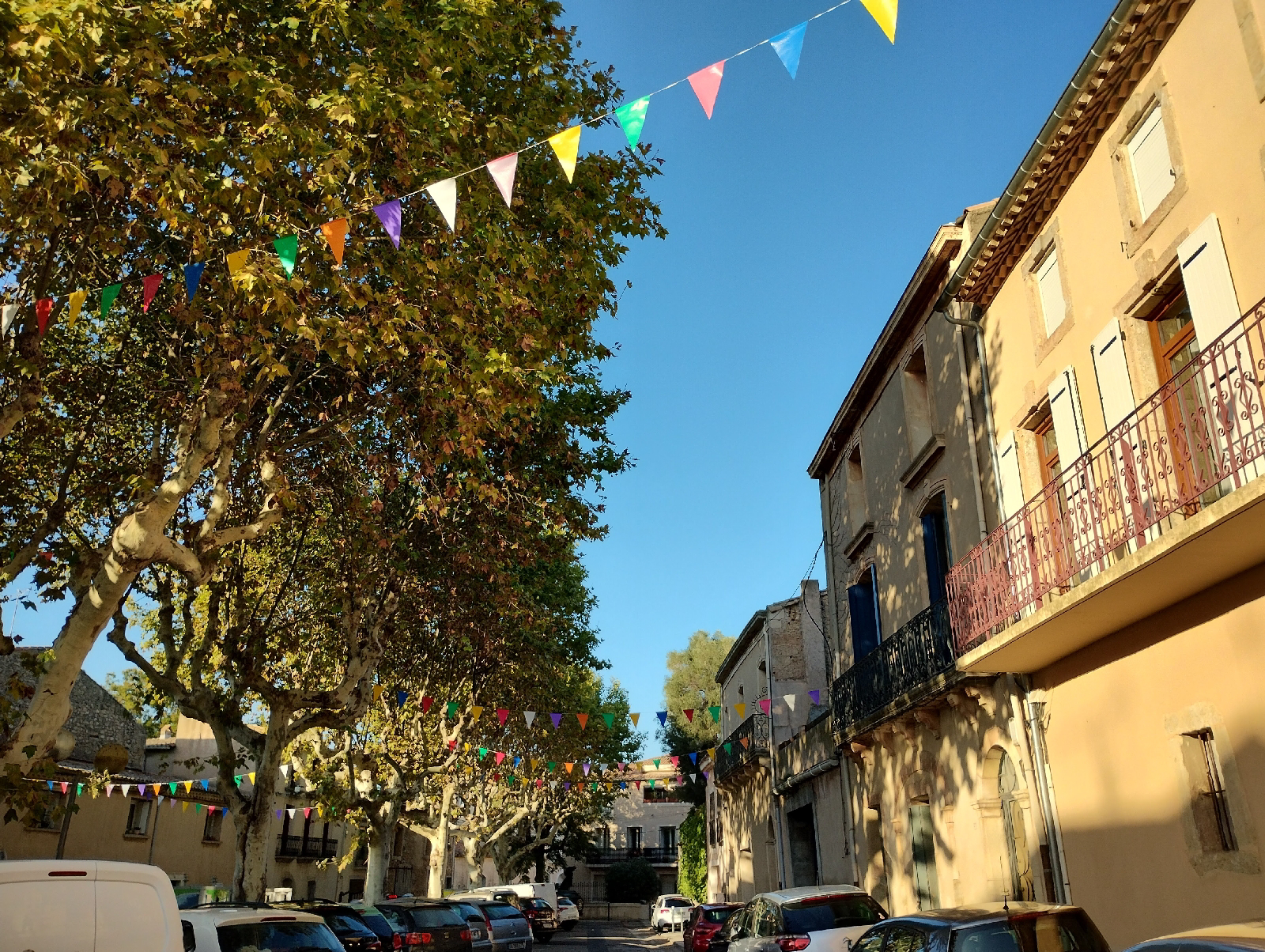



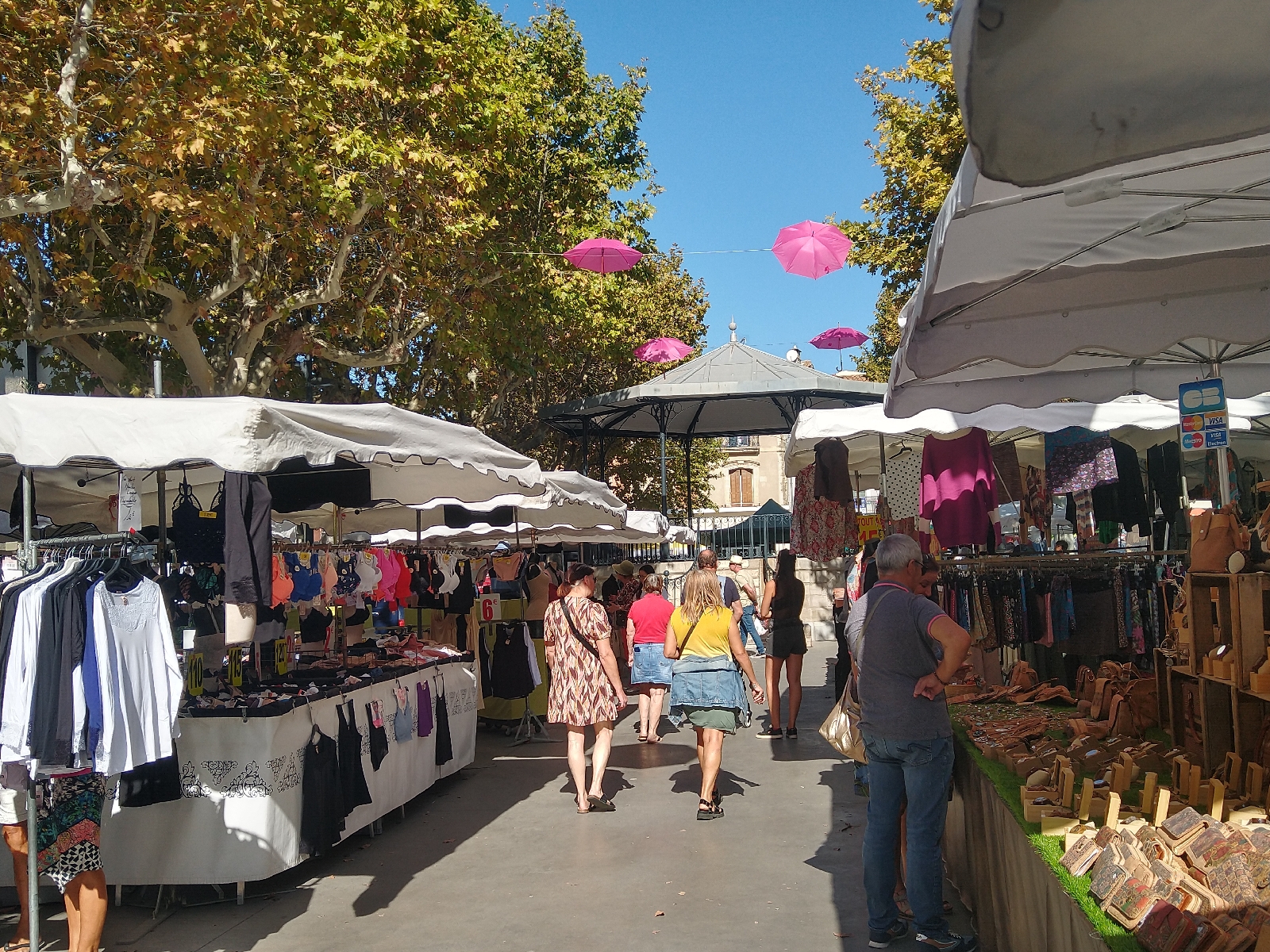

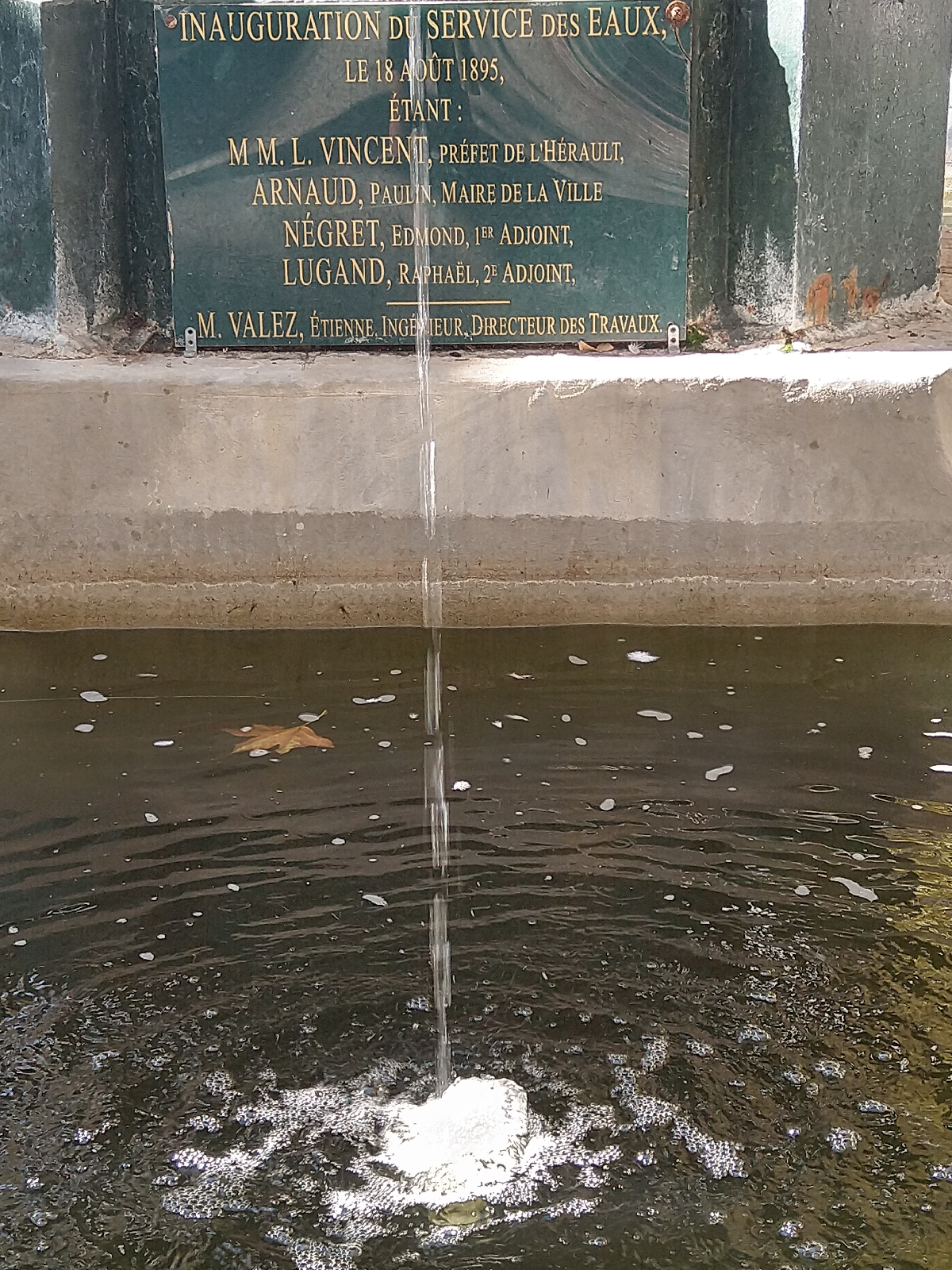




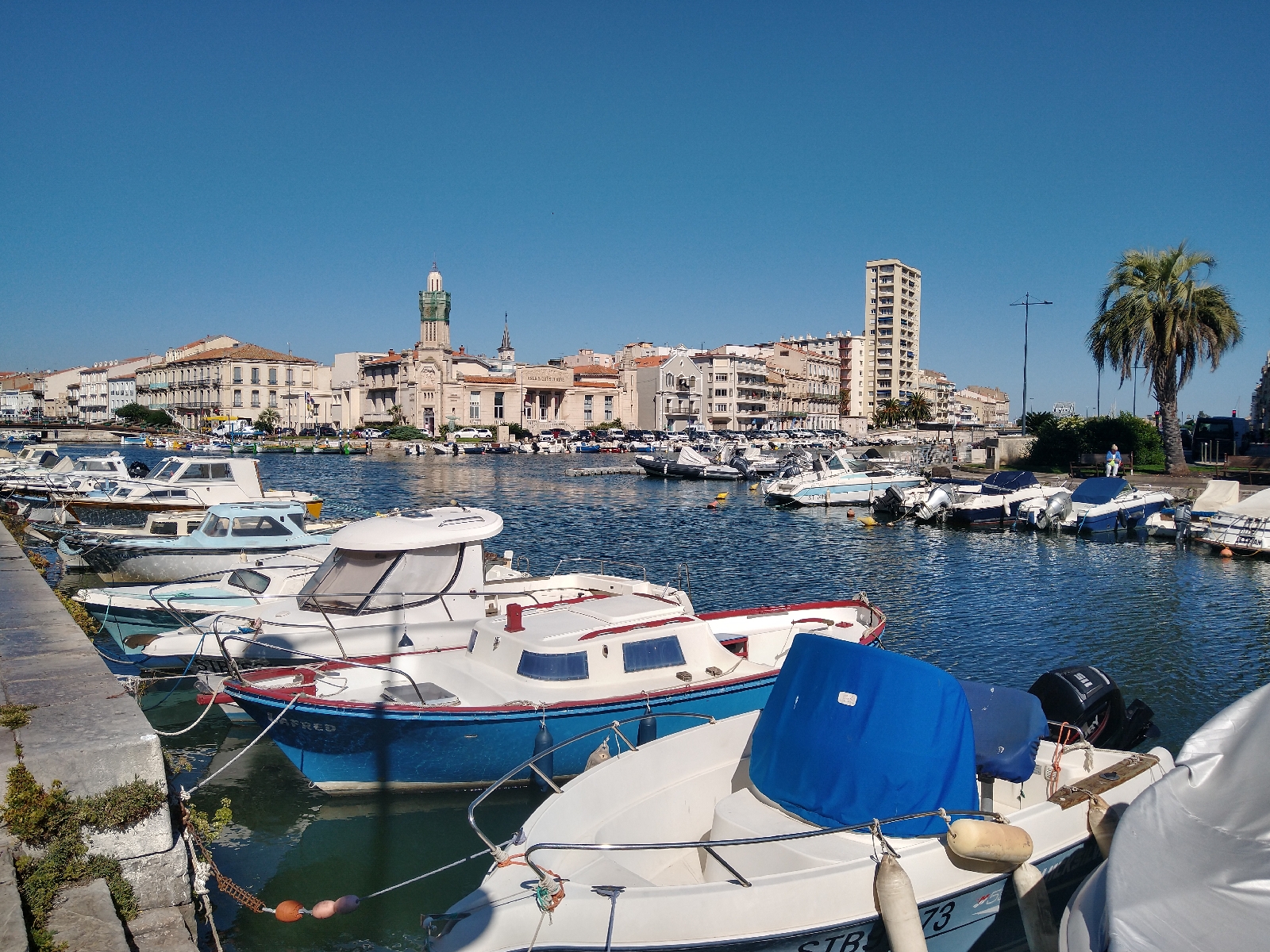


No comments:
Post a Comment